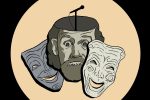Documentaries have always been some of my favorite types of movies. Something about seeing directors take known source material, combine it into coherent messages and deliver it in a new fashion is extremely compelling to me.
A lot of the time, documentaries tend to take on a bit of their director’s personality, and the audience can see the love and passion they have for the subject. When the message serves a purpose and no piece feels out of place, it is often because the people involved cared enough to make sure that everything they did, they did as well as they could.
Director Morgan Neville’s documentary is this sort of film.
Mirroring Fred Rogers’ personality, “Won’t You Be My Neighbor” is a warm telling of a story about a man who wanted to change the world. And I’ll admit it, I cried like a baby.
“Mister Rogers’ Neighborhood” was a simple show. The sets were dingy, the puppets and props often secondhand and the star, Mister Rogers himself, a soft-spoken unassuming man. Nothing about the program suggested it would be a success, and the cast and crew interviewed for the film express shock that anything had come of the endeavor.
For some reason, it just worked, and as the film tracks Mister Rogers’ meteoric rise in the world of television, it soon becomes clear this is less of a biopic and more of a portrait of Mister Rogers as a person.
Banking on the idea that most people have at least heard of Rogers in passing, the film skips over most of his childhood (this is a bit surprising), focusing instead on his life after college and seminary (Rogers was an ordained minister) and his efforts to create a show unlike any other.
https://www.youtube.com/watch?v=eInUUfyqa5o
Mister Rogers’ motivation was simple. He saw a medium that had enormous potential but wasn’t being used to its fullest. Television treated children as consumers, he said, trying to sell things to them as soon as possible. Where networks saw a chance to make money, Rogers saw a tool to reach out and teach.
As a minister with a degree in psychology, Rogers was uniquely positioned to blaze a trail and make an example that others could follow. When it became clear that no one was willing to, Rogers shifted his attention from trying to set an example to using his influence to fight back against the shows he saw as damaging and dangerous. He eventually came to hate television and focused his energies into making his show the opposite of every other.
Where other shows were becoming fast-paced, Rogers purposefully slowed his down to a crawl. His cast recalled how he purposefully set a snail’s pace with the script, at one point asking his audience if they wanted to see how long a minute was. Setting up a stool, Rogers turns an egg timer to a minute and sits there in silence until it goes off.
To make people see that television didn’t have to be the way every other channel was, Rogers did things others were afraid to.
It was because of this that Mister Rogers decided to tackle heavy topics. Most television shows were diversionary, he thought, created to capture a child’s attention and distract them from the world. In Mister Rogers’ mind this was wrong. Children didn’t need help ignoring the world, they needed help understanding it.
When Bobby Kennedy was killed, for example, Rogers ran episodes dealing with the topic of death and assassination. As racial segregation took over the news, Rogers made it a point to air an episode where he bathed his feet together with a black man.
Rogers is often called a radical for the things he did, but perhaps what’s more radical is that what he did wasn’t that radical at all. He simply fought back against the idea that children needed to be shielded and distracted from the world. Children had deep emotions, Rogers said, just like adults. They also have questions and concerns, and ignoring these did nothing but cause more of the same.
Mister Rogers had few real controversies in his life to speak of, but as the film progresses, he began to struggle with certain aspects of his life, which is covered in the second half of his life. Francois Clemmons, who played Officer Clemmons on the show, was an important figure for “Mister Rogers Neighborhood.”
As an African American, Clemmons allowed the show to reach young African-American children. He also served the purpose of allowing Rogers to demonstrate racial tolerance, unity and openness regardless of the color of someone’s skin. Clemmons provided a role model for children to look up to and helped break down barriers.
However, Clemmons was a closeted homosexual who was eventually outed when he was spotted at a local gay bar. In response to this, Rogers told Clemmons he was never to go back to that place, and if he did he would be removed from the show.
Clemmons, at this point, emphasized that he wasn’t dumb. He knew how important what they were doing was and wasn’t eager to give it up. Instead, he closeted himself at Rogers’ behest and tried to force himself into a heterosexual marriage.
For a man who had created a show based on the motto “I like you just the way you are,” seeing his open views suddenly shut tight was jarring.
It would have been nice to see him stand up for gay rights during the years when no one else was willing to, but it’s also important to keep in mind that the world was not so open and tolerant of different sexual orientations yet. Taking a stand on a topic such as homosexuality not only would have tested Rogers’ faith but also would have put his show in the crosshairs. Instead, he chose the easy way out.
This side of Mister Rogers is important to see if you want to understand him. His son described him as “almost the second coming of Christ,” and nobody in the film ever has a bad word to say about him. The on-screen personality he showed is described as the exact same as it was in his personal life.
Despite the perfection he seemed to portray though, Mister Rogers was still human. He made mistakes and did his best to learn from them.
In showing the light and dark sides of Mister Rogers, Neville strikes a balance that brings focus to the main point of the film: that nobody is perfect, but everybody is special. Everyone deserves to love and be loved.
Mister Rogers wasn’t perfect. He was not the second coming of Christ. He struggled with fear, anxiety and wondered to himself if his birth was a mistake. Behind that calm, timid personality though was an enormous strength: dedication to improving himself and those around him through love.
Pushing Clemmons to hide his true self had tormented Rogers for years. When Rogers finally accepted Clemmons’ true sexuality, Clemmons broke down in tears. It was the first time another man had told him he was unconditionally loved.
“Love is at the root of everything,” Rogers says in the film. “All learning. All relationships. Love, or the lack of it.”
This documentary was a tear-jerking trip back to childhood. By the time the credits rolled, most people watching the documentary were crying audibly. Mister Rogers represented the best of what humans could be. He loved openly, fought for equality and was a calming voice in a scary world.
I had the honor of seeing @MrRogersMovie this weekend. It drove me to tears and moved me profoundly. This is a film everyone should see. Not only is Fred’s story incredible, but the heart of what he did is much needed today. #wontyoubemyneighbor pic.twitter.com/M2qn0mC5dS
— Matt Freres (@mattfreres) June 17, 2018
If any complaints can be lodged at Neville, it’s that the film felt short. At 94 minutes, a lot of Rogers’ life was glossed over in service of the main points of the film. This isn’t necessarily a bad thing, but by the end I was finding myself wishing more time could be spent with Mister Rogers and his neighborhood.
Despite this though, the film was enjoyable. For those of you who have never seen the show and only heard of the man in passing, Neville’s film is a great introduction. Though Mister Rogers and his neighborhood may not have changed the world, he left an important message behind.

















